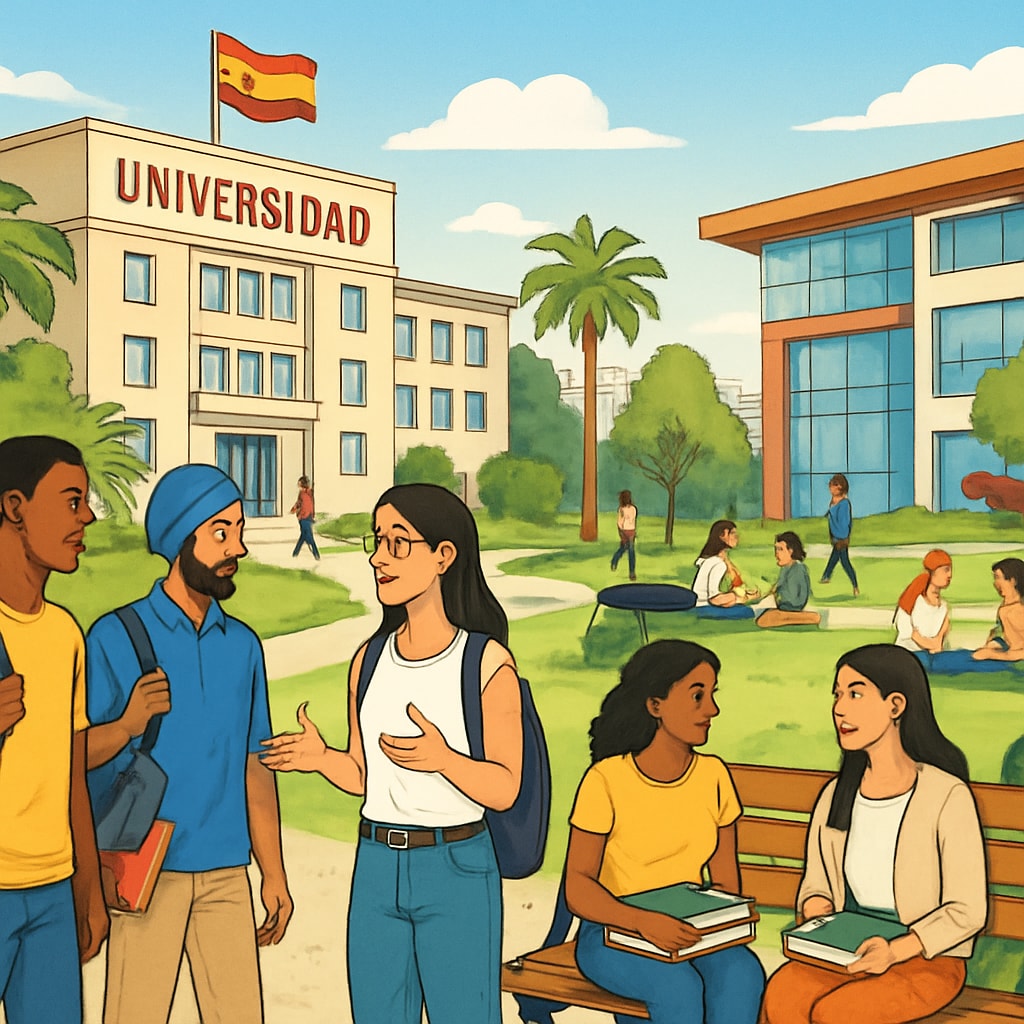Pursuing a master’s degree in Spain offers international students not just the opportunity for advanced education but also a potential pathway to long-term immigration and settling in one of Europe’s most vibrant countries. With its world-class universities, cultural richness, and accessible residency options, Spain is increasingly becoming a top destination for higher education and immigration. This article explores the opportunities and challenges of studying for a master’s in Spain and how it can serve as a stepping stone to permanent settlement.
Why Choose Spain for Your Master’s Degree?
Spain boasts a rich academic tradition, with universities such as the University of Barcelona and Complutense University of Madrid offering globally recognized programs. Studying in Spain provides students with exposure to diverse cultural experiences, high-quality education, and affordable tuition fees compared to other European countries. Furthermore, Spain’s thriving economy and demand for skilled labor make it an attractive option for those considering long-term residency.

In addition to academics, Spain is known for its welcoming environment for international students. The government has implemented policies that simplify visa processes, making it easier for students to transition from study to work visas. Programs taught in English also remove language barriers, allowing students from various backgrounds to thrive.
Steps to Successfully Pursue a Master’s in Spain
To embark on your educational journey in Spain, follow these steps:
- Research Programs: Identify master’s programs that align with your career goals. Use resources like Study in Spain for detailed program listings.
- Understand Admission Requirements: Each university has specific criteria, often including transcripts, recommendation letters, and language proficiency tests.
- Apply for a Student Visa: Ensure your documents are prepared well in advance to meet the visa application deadlines.
- Plan Your Finances: Spain is relatively affordable, but budgeting for tuition, accommodation, and living expenses is essential.
- Prepare for Cultural Adaptation: Familiarize yourself with Spanish culture, traditions, and basic language skills to ease your transition.
How a Master’s Degree Can Pave the Way for Immigration
One of the most appealing aspects of pursuing a master’s in Spain is the potential for immigration. Unlike other countries with strict post-study work policies, Spain offers pathways that encourage international graduates to stay and contribute to its economy. Here’s how:
- Post-Study Work Opportunities: Upon completing your degree, you can apply for a one-year post-study visa to find employment or start a business.
- Transition to Work Visa: If you secure a job, you can apply for a work visa, which sets you on the path to permanent residency.
- Long-Term Residency: After living in Spain for five years, you become eligible to apply for permanent residency, provided you meet the requirements.
Additionally, Spain’s membership in the European Union (EU) opens doors to work opportunities across other EU nations, making it a strategic choice for global professionals.

Overcoming Challenges: Tips for Cultural and Social Adaptation
While the benefits of studying in Spain are numerous, adapting to a new culture can be challenging. Here are some strategies to ensure a smooth transition:
- Learn the Language: Although many programs are taught in English, knowing basic Spanish will enhance your daily interactions and job prospects.
- Engage in Cultural Exchange: Participate in local events, join university clubs, and connect with Spanish peers to immerse yourself in the culture.
- Seek Support Networks: Many universities have dedicated offices for international students, offering resources to help you navigate academic and social life.
- Stay Open-Minded: Embrace the differences in traditions, food, and communication styles as part of your growth journey.
By proactively engaging with the local community and utilizing available resources, you can build a fulfilling life in Spain that extends far beyond your academic pursuits.
Conclusion
Studying for a master’s degree in Spain is a rewarding experience that combines academic advancement with opportunities for cultural enrichment and long-term immigration. By carefully planning your journey and leveraging Spain’s supportive policies for international students, you can turn your educational aspirations into a successful pathway for permanent settlement. Whether you seek personal growth, professional development, or a new beginning in an exciting country, Spain offers the tools and opportunities to help you achieve your dreams.
For more information, visit authoritative resources like Education in Spain on Wikipedia or consult Spanish consulate websites for updated immigration policies.
Readability guidance: Short paragraphs, clear headings, and transitional phrases enhance readability. Lists summarize key points, and external links provide credible references. Images add contextual relevance to the content.


